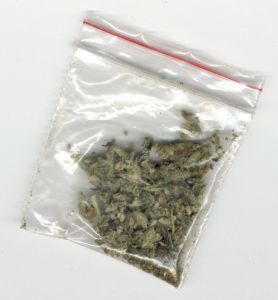California marijuana legalization: Whether or not pot is addictive is irrelevant
The Los Angeles Times reported recently on marijuana’s potential for addiction as part of the ongoing debate over its potential legalization via Proposition 19 on next month’s ballot.
Our Los Angeles medical marijuana defense lawyers think it’s a mute point. An argument can be found that points to the addictive qualities of table salt. Alcohol is addictive and can be deadly in excess. Tobacco is addictive and has no redeeming qualities whatsoever. Both are legal and cost the medical establishment millions, if not billions of dollars each year. Neither would stand a chance of being outlawed because of the large, established power brokers who have made their fortunes from it and the politicians who protect them even while screaming about the dangers of marijuana.

Not to mention the fact that any teenager in the land can get you marijuana, which is illegal, much easier than he or she can get you alcohol, which is legal and regulated in much the way supporters of the marijuana legalization effort hope pot soon will be.
The Times follows the story of a 69-year-old woman who said she was addicted to marijuana for 19 years. (Note, again, that she is now 69 as we discuss the possible health consequences).
The Times reports that many health experts are against marijuana legalization, saying it will cause more addiction and more car accidents, and will erode performance in school.
Studies suggest that marijuana is addictive for about 9 percent of adults who use it — compared to 15 percent for alcohol and cocaine. A study by the National Highway Traffic Safety Administration in 1998 found the effects of marijuana on driving were modest but became severe when combined with alcohol.
Another question is how many more people are likely to experiment with marijuana should it become legal — some put the increase at as high as 50 percent. Others say that is unlikely because California’s relaxed laws and the availability of medical marijuana have already made the drug readily obtainable.
Continue reading
 Cannabis Law Group's Medical Marijuana Legal Blog
Cannabis Law Group's Medical Marijuana Legal Blog









